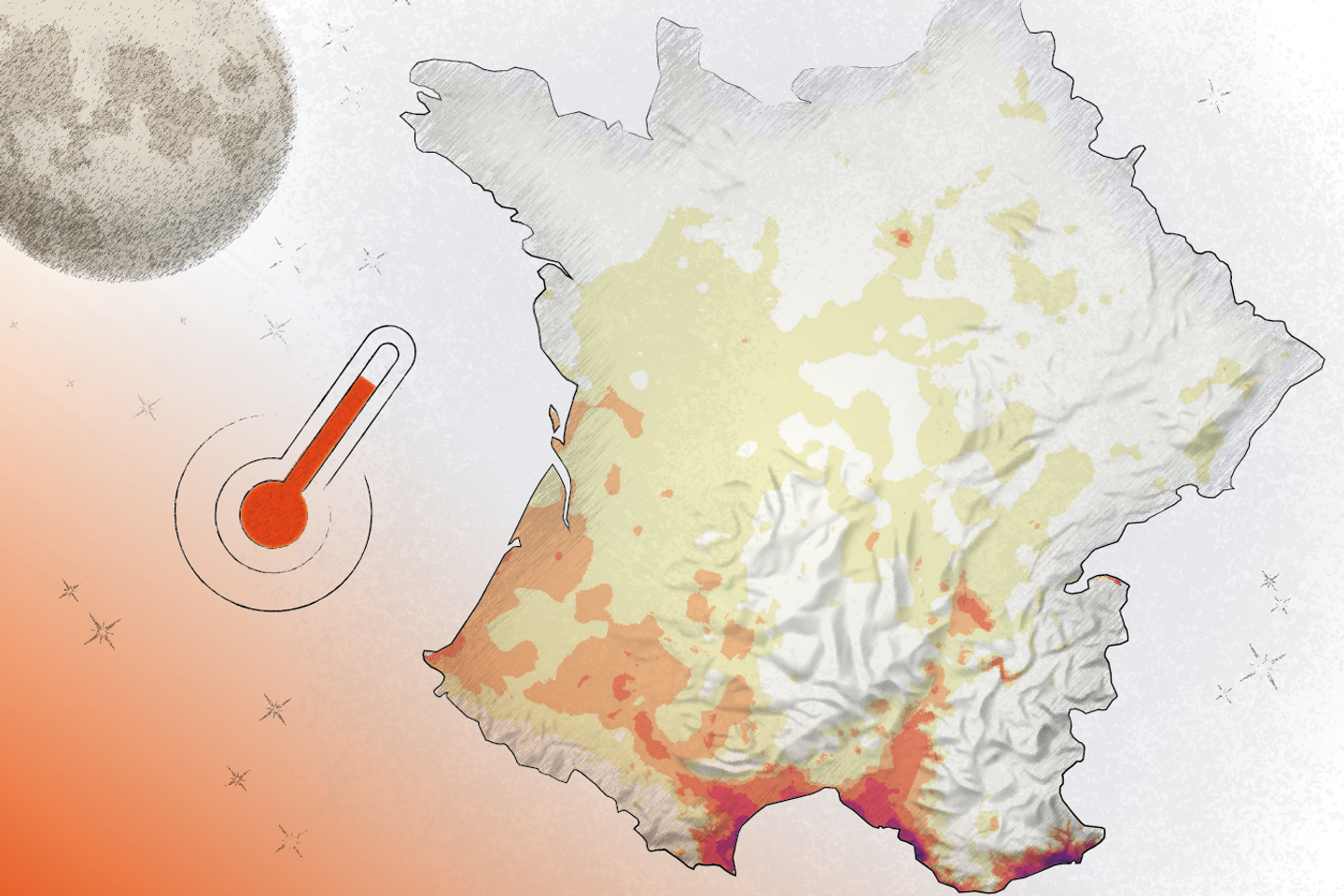


In many temperate regions, this phenomenon used to be considered unusual. However, so-called "tropical" nights, when the temperature doesn't drop below 20°C, are becoming increasingly common and widespread throughout France. This is a direct consequence of atmospheric warming, which affects vulnerable people and leads some to install air conditioners to preserve their sleep.
Over the course of the summer, which was relatively mild in some parts of the country, Nice experienced 60 consecutive nights of this kind. On the night of August 11, the temperature in Menton remained stuck at 28.1°C. Before thunderstorms broke through the sweltering heat, Marseille had recorded 28 consecutive nights above 20°C, Cannes, 26, and Perpignan, 20.
"We're not surprised, but we're a bit alarmed when we look at the data," explained Matthieu Sorel, a climatologist at Météo-France. "We're seeing an increase in these episodes in the south, and the phenomenon is clearly moving northward. No region is spared."
The Mediterranean, a 'thermal regulator'
Data from the last decade on towns along the Mediterranean coast, compiled by Météo-France and reviewed by Le Monde, are striking. On August 1, 2017, the temperature in Marignana, Corsica, remained at 30.5°C all night, setting an all-time record.
In 2022, the city of Nice experienced 104 tropical nights, including 69 in a row, another record. Over the past 10 years, these numbers have climbed steadily: 93 tropical nights in 2018, 82 in 2019, 89 in 2023 and 70 in 2024. This is a clear indicator of climate change. Between 1943 and 1952, Nice recorded an average of 22 tropical nights per year. Since 2015, no year has seen fewer than 70 nights with temperatures above 20°C.
"Like all temperature-related phenomena, this is a direct result of climate change, although local variations may occur due to cloud cover or landscape morphology," explained Robert Vautard, co-chair of Working Group 1 of the Intergovernmental Panel on Climate Change (IPCC).
According to an INSEE Provence-Alpes-Côte d'Azur report published on May 21, 79% of the region's population will be exposed to tropical nights over the period 2021-2050, compared with just 35% over the period 1976-2005, "mainly on part of the coastal strip." "The Mediterranean Sea acts as a thermal regulator, it can moderate daytime temperatures but also keep them very high at night," explained Sorel. "It increases humidity levels, which adds an uncomfortable dampness that, combined with the heat, can have significant health impacts."
You have 53.43% of this article left to read. The rest is for subscribers only.
